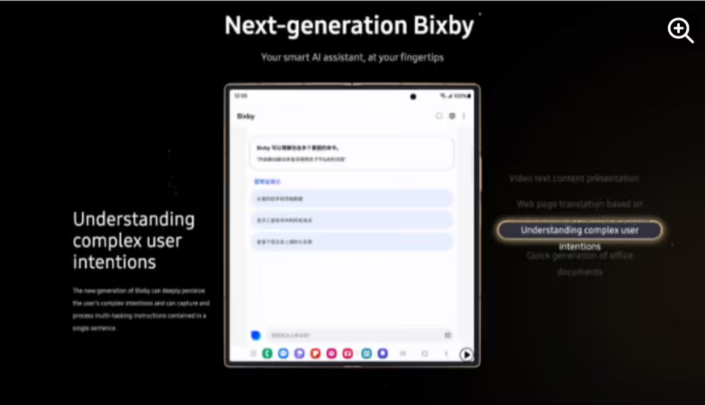According to the latest report from South Korean media ET News, Samsung plans to introduce AI large model support for its voice assistant Bixby in January next year. This upgrade is expected to be a key selling point for the upcoming Galaxy S25 series.
This year, Samsung has been very active in enhancing AI features in its smartphones. From "sketch generation" to "selection search," the Galaxy series phones have demonstrated increasingly sophisticated intelligent characteristics. Notably, Samsung has also engaged in deep collaboration with Google to adapt the Gemini AI assistant for its phones, showcasing its ongoing commitment to artificial intelligence.

As early as July this year, Samsung officially announced that Bixby would receive an artificial intelligence upgrade. This upgrade is not limited to smartphones but will also extend to its BESPOKE AI series of home appliances. Most notably, the upgraded Bixby will have enhanced contextual understanding capabilities, able to handle natural language that includes multiple commands and remember previous conversation content.
For example, users can now interact with Bixby like this: "Set the air conditioner to 26 degrees and finish the laundry before 5 PM." The new version of Bixby will accurately understand and execute this complex command—not only adjusting the air conditioning temperature to 26 degrees but also ensuring that the washing machine completes the laundry task on time later that day.
Currently, Samsung has officially launched the One UI 7 Beta testing on December 5, covering the first batch of Galaxy S24 series devices in Germany, India, South Korea, Poland, the UK, and the US. This update not only optimizes Galaxy AI features but also upgrades calling functions and redesigns the camera user interface.
Industry experts generally believe that this AI large model upgrade for Bixby will provide users with a more intelligent and natural interaction experience. As artificial intelligence technology continues to advance, tech giants like Samsung are redefining the interaction boundaries of smart devices. The upgrade in January next year may become a milestone moment in the evolution of smart voice assistants.








